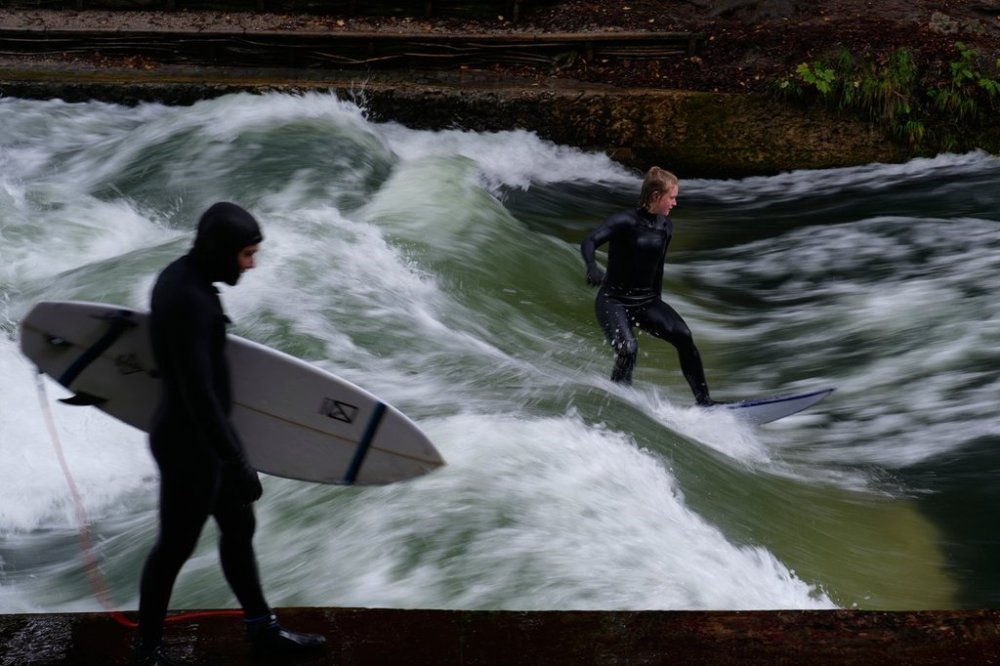Munich’s famous river wave has vanished after a cleanup. Surfers hope it will return soon
Advertisement
Read this article for free:
or
Already have an account? Log in here »
To continue reading, please subscribe:
Monthly Digital Subscription
$0 for the first 4 weeks*
- Enjoy unlimited reading on winnipegfreepress.com
- Read the E-Edition, our digital replica newspaper
- Access News Break, our award-winning app
- Play interactive puzzles
*No charge for 4 weeks then price increases to the regular rate of $19.00 plus GST every four weeks. Offer available to new and qualified returning subscribers only. Cancel any time.
Monthly Digital Subscription
$4.75/week*
- Enjoy unlimited reading on winnipegfreepress.com
- Read the E-Edition, our digital replica newspaper
- Access News Break, our award-winning app
- Play interactive puzzles
*Billed as $19 plus GST every four weeks. Cancel any time.
To continue reading, please subscribe:
Add Free Press access to your Brandon Sun subscription for only an additional
$1 for the first 4 weeks*
*Your next subscription payment will increase by $1.00 and you will be charged $16.99 plus GST for four weeks. After four weeks, your payment will increase to $23.99 plus GST every four weeks.
Read unlimited articles for free today:
or
Already have an account? Log in here »
MUNICH (AP) — Germany’s famous river-surfing wave in Munich has mysteriously disappeared, leaving Bavarian surfers high and dry for the first time in decades.
The Isar River’s man-made Eisbach (icy creek) wave has been drawing surfers to the landlocked city of Munich since 1972, when it was formed by concrete blocks that had been placed in the canal to control the strong current.
SurferToday.com lauds the Eisbach as “the mother of all river waves” and says it can reach a height of 4 feet (1.22 meters). Surfers take turns jumping from each bank into the frigid water as spectators line a bridge overlooking their efforts. The wave is so powerful, the average ride lasts less than a minute.

After the city conducted its annual draining last week to clean the river, the wave never returned. It’s unclear why, but the mayor’s office says surfers are working with the building department to figure out how to restore it.
Munich resident Lena Stillner has been surfing the Eisbach for seven years. She said it’s a shame the wave has disappeared and hopes the city will find a solution soon so she and her fellow surfers can return to the water.
In the meantime, surfers are flocking to a second wave in Munich that’s located in the same park as the Eisbach. It’s just not as powerful.
Munich, which is famous for hosting Oktoberfest, only legalized surfing the wave in 2010. A experienced surfer died in April after authorities believe her board’s leash got tangled in the riverbed and she was pulled underwater. The fatality prompted new safety regulations, including a ban on nighttime surfing.
River surfing is also popular in the United Kingdom and Hawaii.
__
Dazio reported from Berlin.

